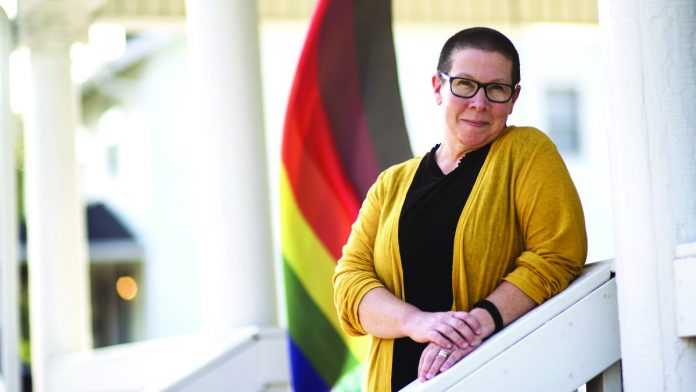
Trigger warning: This article covers topics like sexual violence. Please read with empathy and care for yourself and your fellow peers.
The weekend of October 29 and 30 is one of this year’s first big party weekends. It’s the time when first-years are welcomed into parties, the time to wear fun costumes, the time to see parties come alive in our little corner of Indiana. But even after a year with COVID-19, this Halloweekend will once again be an annual high-risk environment for power-based personal violence within the student community on campus.
“High-risk weekends are weekends where people may be engaging more in party culture and high risk behaviors that are related to higher levels of alcohol and drug consumption,” Sarah Ryan, director of the Women's Center, said. “We know that there is a correlation between party culture and rape culture on our campus and on campuses across the country.”
Anticipating Halloween weekend for DePauw’s Women’s Center means encouraging active-bystander behaviors between peers.
Strategies like the Three D’s (Direct, Delegate, and Distract) taught in DePauw’s Green Dot Bystander Intervention program make for effective intervention of potentially harmful behaviors, where any and all students can save a life when they notice behaviors that could lead to harmful situations.
Power-based personal violence like sexual assault and harassment often happens behind closed doors, according to Ryan. But when someone doesn’t look capable of consent to touching, dancing, or kissing, when someone appears afraid and isolated in a high-risk environment, or when something just doesn’t look right, being an active bystander can save a fellow student from dangerous encounters before they happen, Ryan said.
While caring for friends and strangers as students is an important step in diminishing violence cases on campus, Ryan notices a missing element to the safety conversation.
”Oftentimes, what we've done as a society is put the responsibility on the potential targets of sexual assault, and to teach people how to keep themselves safe,” Ryan said. “But I think one of the most important things we can remember is that the best way to prevent sexual assault is to not sexually assault someone. Period, full stop.”
First-year student procedures like the “Intervene” screening during orientation week are designed to empower students with strategies that cultivate a culture of consent in our community. The 19-minute video shows the Three D’s in action, when a college-party scene depicts a potential assault toward a woman who is in a blackout state. Three active bystanders intervene: one directs the woman away from the situation, one distracts the man, and it is encouraged by a delegator.
The way DePauw students have reacted to “Intervene” can perpetuate, or dismantle, the normalcy of high-risk weekends.
“If someone minimizes or blows off a program like ‘Intervene’ or any conversation about sexual misconduct, then that's going to be a huge cue to the newest members of our community that this isn't something serious or something that we need to pay attention to,” Ryan said.
Despite the resources like Public Safety, the Women's Center and Title IX offices, the most effective way to prevent violence on our campus comes from its students and our care for one another’s safety.
So, look alive, DePauw community. RA’s, mentors, team captains, club leaders and students alike all have a responsibility for this weekend that must be at the forefront of the high-risk weekend preparations.
Ryan noted that staff members are not the ones intervening in potentially dangerous situations at parties or campus settings, but rather students are the ones who are ultimately responsible for one another’s safety.
“And that's why [students] all need to work in partnership, because otherwise, it's not going to work… It takes all of us doing our part to change the culture on our campus to one that says ‘violence isn't going to be tolerated here’,” Ryan said. “It’s all of our responsibilities to look out for each other, and if something were to happen and someone was harmed, we have a ton of support and resources on campus to help someone through that process.”
An easy way to work in partnership with peers is by practicing consent in daily interactions. Asking a friend for a hug, asking a peer if they would like a drink, asking a stranger if they’d like company during lunch––these are all ways to create a culture of empathy and consent on our campus that can make this coming weekend and the years to come a more enjoyable experience for everyone.
Ryan believes those interactions can normalize consent, so if it moves to a romantic or sexual situation, DePauw students will be more practiced at noticing, and preventing, problematic behaviors.
This week, encourage your peers to remember the Green Dot mantra: “No one has to do everything, but everyone has to do something.”
“You have a right to be social. It should not be an expectation that if you go to a party that something bad is going to happen,” Ryan said.
If you, a friend, or a stranger need assistance intervening in or coping with a dangerous situation, please utilize campus resources.
Public Safety: (765) 658-5555
Sexual Assault Survivors Advocate: (765) 658-4650
Counseling Services: (765) 658-5961
(phone numbers are also listed on the back of student ID’s)
